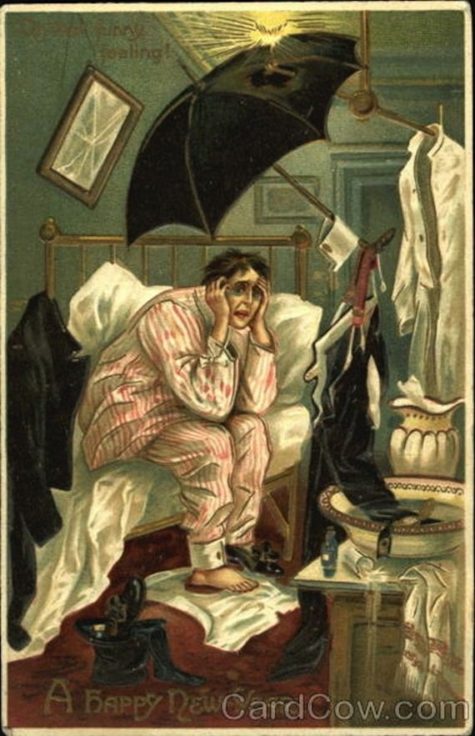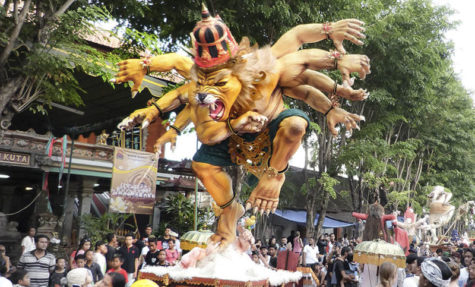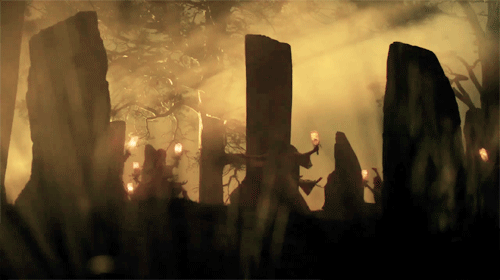Bad Luck
In Italian popular culture, Friday the 17th (and not the 13th) is considered a day of bad luck. In fact, in Italy, 13 is generally considered a lucky number. However, due to Anglo-Saxon influence, young people consider Friday the 13th unlucky as well.
Here are some simple ways to change your luck:
- Spread candies and coins around your house, especially in the corners of rooms.
- Wear coral, wash it with Holy Water and/or Coconut water (the liquid from a coconut) to replenish it’s powers.
- Bathe in Laurel leaves.
- Make a small mojo with equal portions of Pine Needles, Lavender, Laurel ,Geranium Leaves, Patchouli and keep under your pillow.
- Keep a small package of Alfalfa in a cupboard to bring good luck to the home.
- Place dried seaweed under the busiest portion of the house to draw luck and prosperity to you.
- To change your luck, add one tablespoon of nutmeg to six cups of boiling water. Steep for three hours. Use for body anointing or add to a ritual bath.
Collected from various sources
There is a lot of lore and superstition surrounding the New Year. What follows is an extensive listing of what NOT to do, and what to avoid at all costs on this most powerful day of the year:
- New Year’s day was one of ill omen to the ancient Egyptians.
- It is unlucky to have clothes hanging on the line when the New Year is born.
- If a person in deep mourning pays you a call on New Year’s day, a member of your family will die before the year is out.
- In Northern Yorkshire, people will not allow anyone to light a candle from the fire on New Year’s day, so afraid are they to “carry fire to fire.”
- The Chinese believe a Buddhist priest to be the first to enter a house on New Year’s morning is even worse than to have a woman first enter it.
- Burn all the visiting cards that have been received throughout the year on the first of January. If you keep them from year to year you will have bad luck.
- If you have not provided yourself with a calendar before the New Year comes in, you will be behindhand in all your undertakings during the year. (Massachusetts.)
- If you eat apples on New Year’s day it will produce abcesses.
- Some people believe that if you put on clean linen on New Year’s day, you will have sores come on your skin.
- On New Year’s day no one must utter the words that indicate death in any form, especially the word “shi” itself, lest the invitation be accepted. (Chinese.)
- The Chinese believe it very bad luck not to pay all of his outstanding accounts on the last day of the year, and begin fresh and straight on New Year’s day.
- If a creditor makes a disturbance in the house of a debtor on New Year’s Day it is considered a most unlucky omen for the future prosperity of the debtor. (China.)
- It is bad luck in China to spend money the first three days of the year, except for candies and refreshments.
- If one sneezes on New Year’s eve while preparing for bed, it is a sign of misfortune during the coming year. (China.)
- It is a sure sign of strife and debates among the learned, and of many robberies to happen during the year, if the new year is ushered in with very red clouds.
- A corpse in the house on New Year’s day is the sign of another death to follow soon.
- The throwing of coal-dust or soot instead of lime before a door on New Year’s day, betokens gloom and bad luck. (Malta.)
- When the wind blows on New Year’s night, it is a sign of pestilence.
- “If you wash clothes on New-Year’s day, you’ll be sure to wash a friend away.”
- It is unlucky to sow on New Year’s day.
- Spend on New Year, spend all the year.
- It is very unlucky to refuse a beggar anything on New Year’s day, or to refuse a request of any kind.
- A sudden noise on New Year’s night foretells the death of an inmate.
- To meet a priest before any other male on New Year’s day, is a sign of death during the year; if a policeman, litigation is sure to follow.
- It is unlucky to have a flat-footed person enter the house first of any one on New Year’s day. (Folk Lore of Northern Countries.)
- It is an omen of ill luck if a redhaired woman enters a house on New Year’s morning.
- If the first man you speak to on New Year’s morning has his hands in his pockets, you will have a hard time getting what money you want during the year.
- Among the Highlanders, if a black and threatening cloud appears on New Year’s eve, it is looked upon as a forerunner of some dire calamity to the country or to the family estate over which it appears to hang.
- French flax is put on the spindle New Year’s eve in many parts of Germany. None must be spun then, as it would be bad for the year’s spinning.
- It is unlucky to have the fire go out on New Year’s day.
- It is unlucky to eat anything green on New Year’s day.
- In Hesna, it is unlucky to eat an apple on New Year’s day.
- In the rural districts of Cornwall, it is unlucky, if a female is the first to enter a house on New Year’s morning.
- In some of the northern countries of Scotland, it is considered unlucky to enter a person’s house on New Year’s day empty.
- In Scotland, nothing that could be washed on the last night of the year was left unclean. Even the walls were whitewashed inside, lest misfortune should fall upon the family.
- To break a white lamp-globe on New Year’s day is a sure sign that you will experience great financial losses during the year.
- To break a colored lamp-globe on New Year’s day is a sign of the death of a near relative during the year.
- The Chinese think it unlucky to allude to any possible misfortune on New Year’s day.
- It is unlucky to take ashes out of the house on New Year’s day.
And last but not least:
In Malta, a superstitious dread still attaches to some one of the family keeping absent at dinner time on New Year’s day. He who doesn’t dine with his family on New Year’s day is expected to die at the end of that same year. It is also said in Malta that he who eats hotch-potch soup on New Year’s day is to gnaw the ham bones all the rest of the year; and that those who eat cabbage on New Year’s day will groan for a whole year.
According to the old roman calendar July 18 is a “dies ater” or black day, meaning a day of ill omen, or Day of Bad Omens. It marks the defeat of the Romans by the Gauls in the Battle Allia in 390 BC which in turn lead to the sack of Rome by the Gauls.
October 6 is also a “dies ater” or black day as it marks the anniversary of the battle of Arausio (105 BC).
Not much is said about the dos and don’ts or any rituals associated with either day, So, I thought it would be appropriate to post this excerpt from a little book called Signs Omens and Portents in Nebraska Folklore, published in 1933:
Signs of evil portent are among the most common of surviving folk beliefs in Nebraska. In number and currency they rival the popular omens concerned with weather and marriage and they are regarded with perhaps a greater degree of seriousness than signs of the latter type. Such a mass of superstitions having to do with death and bad luck hints at underlying pessimism in human beings. It suggests a preoccupation with the idea of death and a constant dread of inevitable calamity.
Possibly thoughts of melancholy are not so pervasive as the signs might lead us to believe, and it is reassuring to note that open credulity has almost disappeared. The mere survival of the signs, however, is a poignant reminder of a fear-ridden past, and such modern taboos as those against counting cars in a freight train and turning in a funeral car are evidence that superstitions are still in the making.
There is much confusion in the signs. Those which are regarded as bad luck omens by many people have become portents of death to others. The shift may be the result of a natural tendency to make omens specific rather than to leave them merely general indications of good or ill fortune.
Many of the signs seem to be based on a rather obvious association of ideas. Funerals bring to mind the common fate of man. Almost any incident connected with a burial may be looked upon as a sign of another death or an impending disaster. The hooting of an owl has an ominous sound. It causes a shudder, inspires fear, and becomes linked with thoughts of future afflictions. Although the howling dog may not as in legend see the goddess of death, he wakens with his mournful falsetto thoughts of gloom, and quite naturally may become to the superstitious a messenger of approaching distress.
Other signs indicate the connection between ignorance and fear, the tendency to look with dread upon the unknown, and to find in the unusual cause for anxiety. The most commonplace occurrence may become a menace, if it takes place at an unexpected time. When standards of appropriateness are violated, when the incongruous is noted, suspicion and fear are aroused.
In such signs the psychological basis seems obvious enough. In others the roots of belief are more difficult to suggest. Possibly the Romans are responsible for many omens associated with birds; the belief in the ill luck attendant upon salt-spilling may come from the Jewish and pagan use of salt in sacrificial rites, and the fear inspired by breaking a mirror may be traced to the use of mirrors by magicians in sorcery. But the origin of many of the symbols seems lost to us entirely. Like the events they predict, they are obscure, and they are perhaps more interesting because of the element of mystery which surrounds them.
Toward the end of March, the people of Tibet had a ceremony to expel the demons of bad luck from their homes, lives, and communities. The people of Bali, which is east of Java, also hold public expulsions of demons at least once a year, and on a new moon.
Each village sets food at the nearest crossroads and then goes to the local temple. Everyone prays and blows horns to summon the demons. Then people begin to bang on anything that will make a loud noise, thus frightening the entities which flee the area.
The demons can’t resist the food, pause at the crossroads, and are ambushed by a priest who curse them. This final ambush causes the evil demons to leave the area, and order is restored.
You can duplicate this ritual at home by leaving food on your front doorstep. The food is not going to come back into your home – so leave it on a paper plate instead of your good china.
Then go through the house, calling and whistling to summon the demons. You will want to sound very musical and inviting. Flutes and pan pipes were often used for this purpose.
When you have gone through every room of your home, and you feel that you have attracted the attention of every bad spirit in your home, suddenly begin banging on pots and pans making a loud noise. Have someone stationed at the door, and when the loud noise begins, have them open the door.
The noise will frighten them, but the bad luck entities of the house won’t be able to resist stopping for the food. Now, use this charm to send them packing:
Off with you spirits of fear, spirits of poverty, spirits of evil, spirits of anger, spirits of unhappiness, spirits of pain, spirits of death.
(You can add to this list and personalize it as much as you’d like.)
Repeat three times – each time louder and more commanding than the last.
Give way to the sun, and the moon,
For this is a sanctuary,
This is a place made safe.
Repeat three times – starting with a loud commanding voice and then diminishing in volume but increasing in determination.
Now, very dramatically and decisively, shut the door and lock it. Say:
Blessings and peace upon us,
Blessings and peace.
Repeat three times – smiling.
Very Important:
Do not bring the food you left on the doorstep back into the house, rather, take it away and leave it in a dumpster or put it by a crossroads not close to your home.
Note: This post was put together by Shirley Twofeathers for Gypsy Magic, and has been moved to my new website, here at shirleytwofeathers.com. You may repost and share without karmic repercussions only if you give me credit and a link back to this website. Blessed be.
In Bali, the last day their 210 day Saka calendar marks the Balinese feast of purification. This is the time of the year when the lord of hell cleans out his underworld lair, and all manner of demons and evil spirits are left to roam Bali free.
During this time….when evil is afoot……the natives go to elaborate lengths to purify both their individual homes as well as the island. No corner or stone is left untouched as rites of purification and spells for protection are recounted
On this Saka New Year’s Eve, it is all blaring noise and merriment. Every Balinese household starts the evening with blessings at the family temple and continues with a ritual called the pengrupukan where each member participates in ‘chasing away’ malevolent forces, known as bhuta kala, from their compounds – hitting pots and pans or any other loud instruments along with a fiery bamboo torch.
These ‘spirits’ are later manifested as the ogoh–ogoh to be paraded in the streets. As the street parades ensue, bamboo cannons and occasional firecrackers fill the air with flames and smoke. The Nyepi Eve parade usually starts at around 19:00 local time.
This date varies from year to year, in 2019, it falls on March 6. It is based on the Saka calendar of western Indian origin, one among the many calendars assimilated by Indonesia’s diverse cultures. The Saka is 78 years behind the Gregorian calendar, and follows a lunar sequence.
If you’d like to honor this tradition, here is a simple house cleansing ritual:
You will need a broom, some sea water, or rain water with some sea salt dissolved in it, and an Asperger (optional). Open all the windows and doors in your house and starting from the center sweep the whole house. Move Deosil (clockwise) as much as possible. As you go, visualize all negativity as a wispy grey cloud which you are driving out through the windows and doors.
Now take your salt water (and Asperger if you have one) and sprinkle the salt water around the boundaries of your whole home, making sure that you include the sills of all the doors and windows. Be very careful not to make everything too wet, or to sprinkle any electrical equipment, switches or sockets, etc.
As you do each door or window say: “I mark this boundary that no negativity be allowed to enter here. Blessed be.” and then close it.
If the weather is really inclement you may need to work room by room rather than doing the whole house in one go. In this case make sure you cover the boundaries between rooms and any passageways, stairs, etc. without windows.
Note: This house cleansing ritual can be used at any time.
Whenever you move into a new home it is as well to cleanse it to remove any residual negative energies which may have been left behind by the previous occupants. You may also like to do this after any period of upset in your home to thoroughly drive out the problem, or if you have been visited by someone who seems to have left some of their negativity behind them.
Sources:
The Ides of March is the name of the 15th day of March in the Roman calendar.
The word Ides comes from the Latin word “idus“, a word that was used widely in the Roman calendar indicating the approximate day that was the middle of the month. The term ides was used for the 15th day of the months of March, May, July, and October, and the 13th day of the other months. The Ides of March was a festive day dedicated to the god Mars and a military parade was usually held.
In modern times, the term Ides of March is best known as the date on which Julius Caesar was assassinated in 44 B.C. Caesar was stabbed to death in the Roman Senate by a group of conspirators led by Marcus Junius Brutus and Gaius Cassius Longinus.
Another point which arises is Shakespeare’s use of the Ides of March and (the lack of doubt in) Marcus Brutus’ decision to assassinate Caesar to portray an atmosphere of madness, pleasure, and pandemonium. It is said that on ides of March the sea succumbs to chaos and the full moon brings high tides. All these points give the Ides of March a very mysterious quality.
The ides were originally meant to mark the full Moon (the “halfway point” of a lunar month), but because the Roman calendar months and actual lunar months were of different lengths, they quickly got out of step. The ancient Romans considered the day after the calends (first of the month), nones (ninth day before the ides, inclusive), or ides of any month as unfavorable. These were called dies atri.
According to Plutarch, a seer had foreseen that Caesar would be harmed not later than the Ides of March; and on his way to the Theatre of Pompey (where he would be assassinated), Caesar met the seer and joked, “The ides of March have come”, meaning to say that the prophecy had not been fulfilled, to which the seer replied “Aye, Caesar; but not gone.” This meeting is famously dramatized in William Shakespeare’s play Julius Caesar, when Caesar is warned by the soothsayer to “beware the Ides of March.” Furthermore, Suetonius writes that the haruspex Spurinna warns Caesar of his death which will come “not beyond the Ides of March” as he is crossing the river Rubicon.
In Canada, the Ides of March is celebrated with the drinking of Bloody Caesars.
Here’s a recipe:
- 6 oz. Clamato Juice
- 1–1½ oz. Vodka
- 2 Dashes hot sauce
- 4 Dashes Worcestershire sauce
- Celery salt
- Freshly ground pepper
- Lime wedge
- 1 Crisp celery stalk
Rim the glass (usually a high ball glass) with celery salt, and a lime wedge.
Found at Wikipedia











